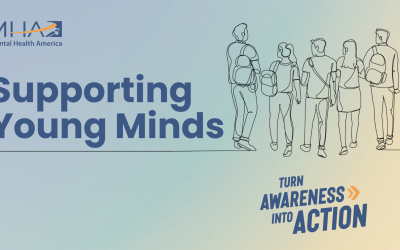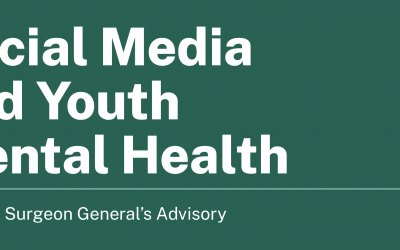Young people today are navigating a world that often feels overwhelming and out of their control. But with the right support, they can move from feelings of helplessness to hope and action. Adult allies (parents, caregivers, educators, mentors, or community leaders) play a powerful role in shaping environments that are not just supportive but truly empowering.
Social Media and Youth Mental Health | The U.S. Surgeon General’s Advisory
by PGM Production | May 1, 2024 | Anxiety, Cyber Bullying, Digital Awareness, Family Support, Mental Health, Mental Wellness, Parent Support, Social Competencies, Stress, Teen Support
This Advisory calls attention to the growing concerns about the effects of social media on youth mental health. It explores and describes the current evidence on the positive and negative impacts of social media on children and adolescents, some of the primary areas for mental health and well-being concerns, and opportunities for additional research to help understand the full scope and scale of social media’s impact.
Revealed: Almost Half of British Teens Feel Addicted to Social Media, Study Says
by PGM Production | Jan 2, 2024 | Anxiety, Cyber Bullying, Digital Awareness, Family Support, Mental Health, Mental Wellness, Parent Support, Positive Values, Social Competencies, Teen Support
Anxiety is part of the human experience and at times the word “anxiety” is watered down. People worry about a wide variety of things. Finances, job stability, relationships, child-rearing, health, and safety come to mind as common worries on a day-to-day basis. Not all worrying, however, qualifies as anxiety.
Anxiety disorders include disorders that share features of excessive fear and anxiety that negatively impact functioning. For kids, this might mean that anxiety makes it difficult to get to school each day, make and maintain friends, sleep at night, or focus in the classroom. For adults, work, romantic relationships, friendships, finances, and physical health can suffer. Anxiety manifests in many ways (physical, emotional, and behavioral), and there are several disorders that fall under “anxiety disorders.”
The Prevalence of Loneliness Across 113 Countries: Systematic Review and Meta-Analysis
by PGM Production | Nov 29, 2023 | Anxiety, Bullying, COVID-19, Cyber Bullying, Depression, Family Support, Mental Health, Mental Wellness, Parent Support, Social Competencies, Stress, Substance Abuse & Addiction, Suicide, Teen Support
Anxiety is part of the human experience and at times the word “anxiety” is watered down. People worry about a wide variety of things. Finances, job stability, relationships, child-rearing, health, and safety come to mind as common worries on a day-to-day basis. Not all worrying, however, qualifies as anxiety.
Anxiety disorders include disorders that share features of excessive fear and anxiety that negatively impact functioning. For kids, this might mean that anxiety makes it difficult to get to school each day, make and maintain friends, sleep at night, or focus in the classroom. For adults, work, romantic relationships, friendships, finances, and physical health can suffer. Anxiety manifests in many ways (physical, emotional, and behavioral), and there are several disorders that fall under “anxiety disorders.”




